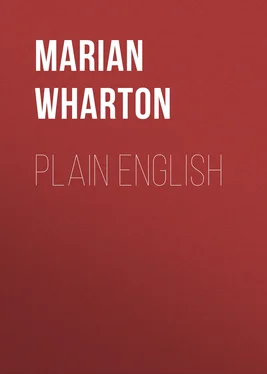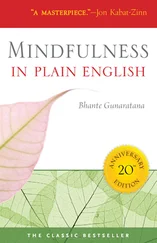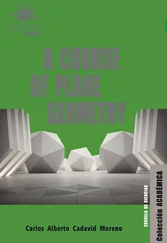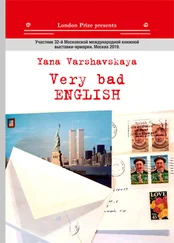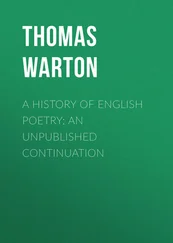Marian Wharton - Plain English
Здесь есть возможность читать онлайн «Marian Wharton - Plain English» — ознакомительный отрывок электронной книги совершенно бесплатно, а после прочтения отрывка купить полную версию. В некоторых случаях можно слушать аудио, скачать через торрент в формате fb2 и присутствует краткое содержание. Жанр: foreign_edu, foreign_language, на английском языке. Описание произведения, (предисловие) а так же отзывы посетителей доступны на портале библиотеки ЛибКат.
- Название:Plain English
- Автор:
- Жанр:
- Год:неизвестен
- ISBN:нет данных
- Рейтинг книги:5 / 5. Голосов: 1
-
Избранное:Добавить в избранное
- Отзывы:
-
Ваша оценка:
- 100
- 1
- 2
- 3
- 4
- 5
Plain English: краткое содержание, описание и аннотация
Предлагаем к чтению аннотацию, описание, краткое содержание или предисловие (зависит от того, что написал сам автор книги «Plain English»). Если вы не нашли необходимую информацию о книге — напишите в комментариях, мы постараемся отыскать её.
Plain English — читать онлайн ознакомительный отрывок
Ниже представлен текст книги, разбитый по страницам. Система сохранения места последней прочитанной страницы, позволяет с удобством читать онлайн бесплатно книгу «Plain English», без необходимости каждый раз заново искать на чём Вы остановились. Поставьте закладку, и сможете в любой момент перейти на страницу, на которой закончили чтение.
Интервал:
Закладка:
8. He was condemned to death because he stood uncompromisingly and courageously for the education of the masses.
9. Ferrer understood thoroughly that the schools of today cleverly and effectively adapt their teaching to maintain the present system of society.
10. He said "The school imprisons the children physically, intellectually and morally."
WORDS USED IN PLACE OF NOUNS
42.Now we come to study another class of words which are also very necessary in order to express our ideas. Suppose you had just arrived in a strange town and you wanted to find the way to a friend's house. You inquire of a stranger, "Can you tell me who lives in the house on the corner?"
Notice the words you and me and who . You could not call the stranger by name for you do not know his name, and hence you say you . And if you used your own name instead of me , he would not recognize it, and you would both be puzzled to find a substitute for that little word who .
If you knew the stranger and he knew your name, you might say, "Can Mr. Smith tell Mr. Jones what person lives in the house on the corner." But this would sound very stilted and unnatural and awkward. So we have these little words like you and me and who , which we use in place of nouns . These words are called pronouns. This word is taken from the Latin also. In the Latin the word pro means in place of . So the word pronoun means literally in place of a noun.
43. A pronoun is a word that is used in place of a noun.
These pronouns are very useful little words. They save us a great deal of tiresome repetition. Notice the awkwardness of the following:
The workers will succeed in gaining the workers' freedom if the workers learn solidarity.
And yet this would be the way we would have to express this idea if we did not have pronouns. Instead we say:
The workers will succeed in gaining their freedom if they learn solidarity.
44.We will study the pronoun in detail in later lessons, but we can readily recognize these words which are used in place of nouns. The most common pronouns are:
I
you
he
she
it
we
they
me
him
her
us
them
my
your
his
her
its
our
their
that
which
who
whose
whom
what
Exercise 3
Underscore the pronouns in the following story:
A man in South Africa picked up a small piece of stone. It was dirty and rough.
"Make me beautiful," said the stone.
"I shall have to hurt you," said the man.
"Well, if it hurts me, I will bear it," said the stone.
So the man took it to a clever craftsman, who put it into a tight vise, and cut it with his sharp instrument.
"Oh!" cried the stone.
And he ground it till the dust fell all about it.
"Oh!" cried the stone.
And he polished it very hard.
"Oh!" cried the stone.
And then he set it in a crown and sent it to the Queen. On a sunny day she wore her crown, and the stone—it was a diamond—sparkled in long rays of crimson and green and yellow and silvery white. And all the people greeted their queen. She showed them her crown and they praised the beautiful stone.
The training was hard, but the improvement was glorious.
PREPOSITIONS
45.Notice the following sentences:
I want the book on the box.
I want the book under the box.
I want the book in the box.
I want the book beside the box.
I want the book behind the box.
I want the book beyond the box.
Do you notice any word in these sentences which does not belong to any of the classes of words which we have studied? I is a pronoun, want is a verb, the is an adjective, book is a noun, the is an adjective, box is a noun; but the words, on , under , in , beside , behind and beyond are not nouns, verbs, adjectives, adverbs or pronouns.
Yet would it be possible to express the meaning in these sentences without these words? Read the sentences without them, and you will see that no one could tell the relation which you wish to express between the book and the box . And you will notice too that each word expresses a different relation, for it means one thing to say on the box and another thing to say in the box , and so through the list.
46.The words which are used to show this relation are called prepositions . The groups of words introduced by the preposition, like on the box and in the box , and so on, are called prepositional phrases. The noun which follows a preposition as box follows the prepositions in , on , beside , beyond , etc., is called the object of the preposition.
Preposition is a word which comes into our language from the Latin. It is formed from the Latin pre , which means before , and the Latin verb which means to place , so preposition means literally to place before . It is given this name because it is placed before the noun or pronoun which is its object. Therefore our definition of a preposition is as follows:
47. A preposition is a word that shows the relation of its object to some other word.
48.Either a noun or a pronoun may be the object of a preposition. Notice the following sentences:
Bring the book to me.
Lay the book on the table.
He will speak to you.
I will speak to the man.
In these sentences the noun table is the object of the preposition on ; the pronoun me is the object of the preposition to ; and in the last two sentences the pronoun you and the noun man are the objects of the preposition to .
49.There are not many prepositions in the language and they are easily learned and easily distinguished. Here is a list of the most common and the most important prepositions. Use each one in a sentence.
at
across
around
about
among
above
against
along
behind
beside
between
below
beyond
by
before
beneath
down
for
from
in
into
off
on
over
to
toward
under
up
upon
with
within
without
Exercise 4
Underscore the prepositions in the following sentences:
He went to the door and looked out upon the field.
Over the river and through the woods, to Grandfather's house we go.
He saw them in the distance as they were coming toward him.
They went along the road, across the bridge, and hid among the trees at the foot of the hill.
They came from Minneapolis down the river by boat.
The war between the classes is a struggle against exploitation.
The army was intrenched behind the barricades before dawn.
His claim was within the law but without justice.
CONJUNCTIONS
50.We have found that the preposition is a very important connective word. It connects two words and shows what one of them has to do with the other, but the preposition is not the only connective word which we use in English. We have another part of speech which performs an important function as a connective word. Notice the following sentence:
Читать дальшеИнтервал:
Закладка:
Похожие книги на «Plain English»
Представляем Вашему вниманию похожие книги на «Plain English» списком для выбора. Мы отобрали схожую по названию и смыслу литературу в надежде предоставить читателям больше вариантов отыскать новые, интересные, ещё непрочитанные произведения.
Обсуждение, отзывы о книге «Plain English» и просто собственные мнения читателей. Оставьте ваши комментарии, напишите, что Вы думаете о произведении, его смысле или главных героях. Укажите что конкретно понравилось, а что нет, и почему Вы так считаете.
